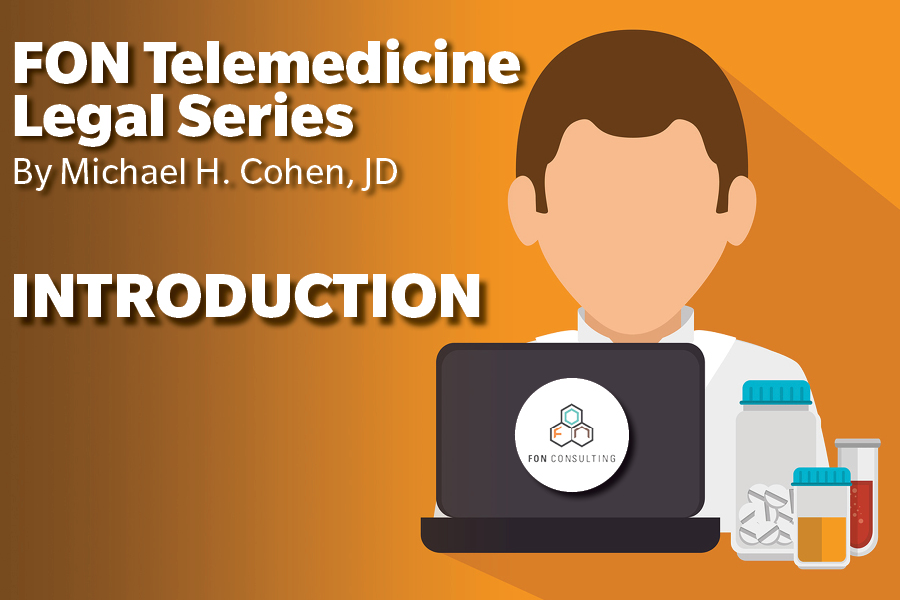7-Part Telemedicine Legal Series—Introduction

In this Series:
Introduction
Part 1: Practice Issues
Part 2: Licensing Issues
Part 3: e-Prescribing
Part 4: Standard of Care Issues
Part 5: HIPAA Issues
Part 6: Mobile Medical Apps
Part 7: Unlicensed Practice, Fee-Splitting, and other Legal Hazards
Conclusion
Healthcare providers everywhere are looking to expand from a brick-and-mortar practice to one that includes online and mobile patient services. Does this describe you?
Broadly speaking, we call online and mobile health ‘telehealth’ or ‘telemedicine’. To keep things understandable, we’ll use these terms interchangeably, unless we’re referencing a specific rule of law that defines the term and applies particular requirements to its practice.
The types of clinicians who want to move their health practices to a telehealth platform include:
- Medical doctors (MDs) and doctors of osteopathy (DOs).
- Allied health professionals (such as psychologists, nurses, and social workers).
- Complementary and integrative medicine practitioners (such as naturopathic physicians, chiropractors, and acupuncturists).
- Non-licensed practitioners (such as health coaches and hypnotherapists who are not licensed mental healthcare practitioners).
Here are the questions we will cover in this 7-part Telemedicine Series:
1. Practice Issues
What is the difference between telehealth and telemedicine, and simply delivering educational tools online? Can practitioners offer webinars and other online health informational services without being subject to laws governing both the practice of medicine and other healthcare professions?
2. Licensing Issues
Because telehealth and telemedicine often involve practice across state lines, healthcare practitioners must understand when state laws allow practice where the healthcare provider is licensed in his or her own state, but not the patient’s.
3. E-Prescribing
The law handles telemedicine prescription differently than diagnosing and treating remotely. How can you comply?
4. Standard of Care
How do healthcare practitioners handle standard of care issues when diagnosing and treating from a distance?
Enjoying this article? Subscribe and get our latest, delivered straight to your inbox.
5. HIPAA
What privacy, confidentiality, and security issues arise when practicing telehealth or telemedicine?
6. Mobile Medical Apps
A Special Case: When medicine is practiced through an installed app on a mobile device, do different rules apply? How does the law regulate telemedicine via the app, and the app itself?
7. Other Legal Issues in Telehealth
Is it getting easier or harder to practice telehealth? What does the law say? What are some of the other key legal areas that telemedicine practitioners and companies have to consider?
Our Telemedicine Legal Series will explore the legal challenges that telehealth presents, and provide general recommendations for healthcare practitioners seeking to either expand an existing telemedicine practice, or open a new telehealth branch of their physical practice.
We will tie it all together in our Conclusion.
Remember, none of this is legal opinion for your situation; healthcare lawyers offer focused advice for specific situations. Here, we present a framework to help you identify issues and understand general strategic choices. Legal review isn’t a binary, one-size-fits-all, but requires nuanced attention to your individual circumstances.
About FON
FON is a leading integrative health and medicine business development and strategy consulting firm. FON specializes in custom solutions for growing patient volume, developing programs, and increasing product sales. Our practical business models are driven by innovative marketing, clear messaging, and customer engagement via branded storytelling.
Contact us today to schedule a complimentary 30-minute consultation to discuss your business development or personal brand needs.





















